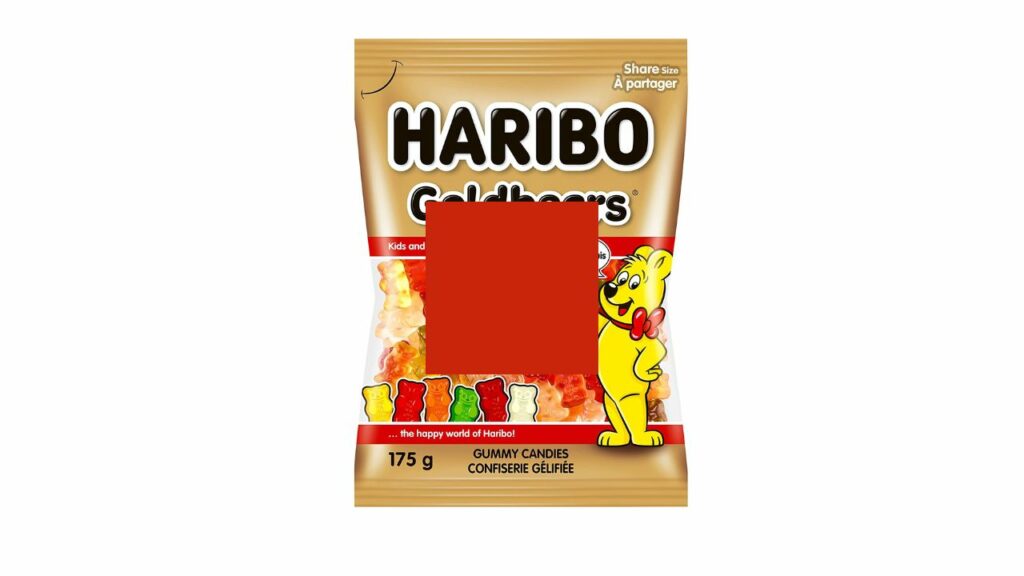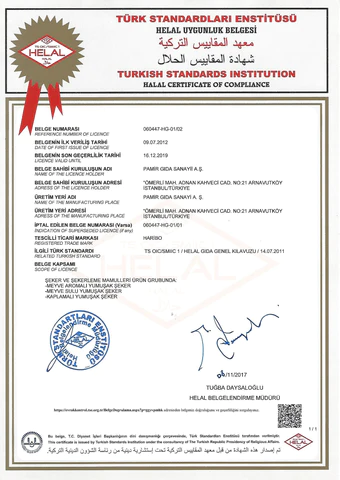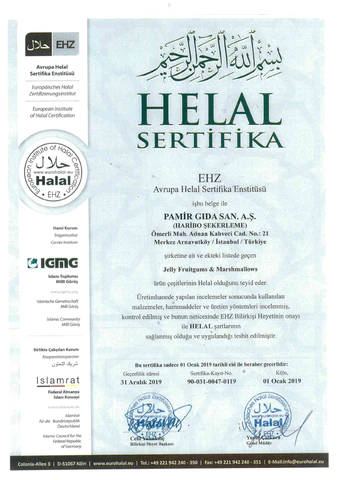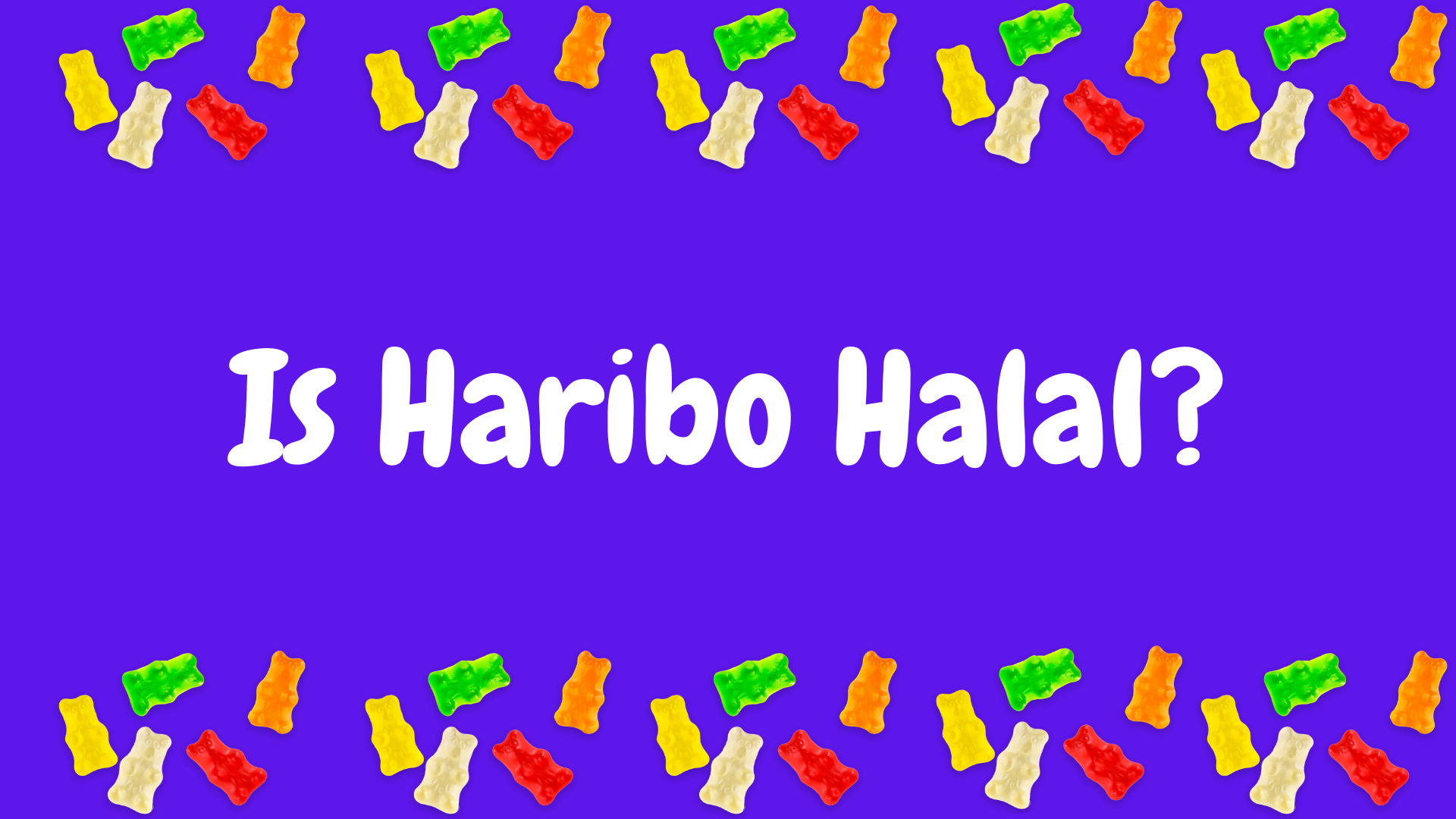For any snack lovers, the question ‘is Haribo halal?’ is a pressing one. Afterall, it is one of the most popular candy brands in the world! Curious about whether you can consume Haribo candies as a Muslim? Make sure to read the blog till the end to get a fitting answer to your question.
Haribo is a German confectionery company, founded in 1920 by Hans Riegel Sr. and his brother Paul. The brand produces a wide range of products, including gummy bears, which are its most popular product. The company’s first product was the “Dancing Bear”, a gummy bear on a small stick. The company expanded its product line in the 1920s with the addition of gummy frogs, gummy dogs, and gummy cats. But what goes into this snack? Read below to find out!
What is Haribo?
Haribo is a type of candy that is popular in many countries. It is made from sugar, corn syrup, starch, flavoring, and food coloring. The ingredients are boiled together and then poured into molds to be cooled and set.
The most popular flavor of Haribo is the original gummy bear. Other flavors include strawberry, raspberry, cola, and orange. Haribo also makes sour candy, which is popular with children.
The candy is often sold in small bags or boxes. It is also available in larger packages that can be shared with others. Haribo candy is a popular treat for special occasions or just as a snack.
Is Haribo Halal?

One of the main ingredients in Haribo is gelatin, which, depending on its source. can be haram. However, gelatin comes in a variety of types and has several vegetarian alternatives which can be consumed by Muslims. Hence the answer to the question of whether Haribo is halal or not is – it depends!
Look out for a few things before consuming Haribo. If it is manufactured in Turkey, not Germany, it is highly likely halal. The company has also started producing halal-specific gummy bears, the packets of which have a halal certification. So if you spot a halal certification on the pack, you can rest assured it is hala. Lastly, while the gummies may not be halal, certain products by Haribo are vegetarian, and can be safely consumed by those who follow a halal diet. These include:
- Freaky Fish
- Funny Mix
- Giant Strawbs
- Giant Trees
- Jelly Beans
- Rainbow Spaghetti
- Rainbow Strips Zing
- Rainbow Twists
- Rainbow Twists (Sour)
- Rotella
- Soft Jelly Bear
- Sour Sparks
- Starbeams
- Starfish
- Strawberry Twist
I will recommend that you read the ingredients and keep an eye out for either the halal certificate or look for vegetarian options from Haribo rather than the popular gummy bears.


Looking for more information on gummy candies and their halal status? Check out our other articles to make informed choices about your favorite sweet treats while adhering to your dietary requirements.
Are Trolli Gummy Worms Haram: Discover the halal status of Trolli Gummy Worms and whether they meet the dietary requirements for Muslim consumers in this informative article. Learn about the ingredients and manufacturing processes that determine their halal or haram classification.
Is Black Forest Gummy Bears Haram: Uncover the truth about the halal certification of Black Forest Gummy Bears in this article. Delve into the details of their ingredients and production methods to make an informed decision about consuming these gummy treats in accordance with your dietary preferences.
Conclusion
So, is Haribo halal? The bottom line is that while some Haribo products may not be halal, the brand does make some options for those who follow a halal diet. In certain cases, Haribo candies manufactured in Turkey are considered halal. Additionally, any candy made by the company that has a halal certification from a recognized Islamic organization is considered halal. However, not all Haribo products are certified halal, so it’s important to check the ingredients list or ask the manufacturer to confirm.
It’s also worth noting that some Haribo candies are made with beef or fish-based gelatin, rather than pork-based gelatin which is haram. These products can be consumed by Muslims. Also, Haribo do have vegetarian candies which can be consumed by those who want to avoid any kind of animal based gelatin. However, it’s always important to check the ingredients list or contact the company to confirm the source of the gelatin in the product you’re considering to consume.
As a reminder, it’s always best to be vigilant and mindful when it comes to what we consume, and always check for halal certification or ingredient list before consumption. Thanks for reading.






